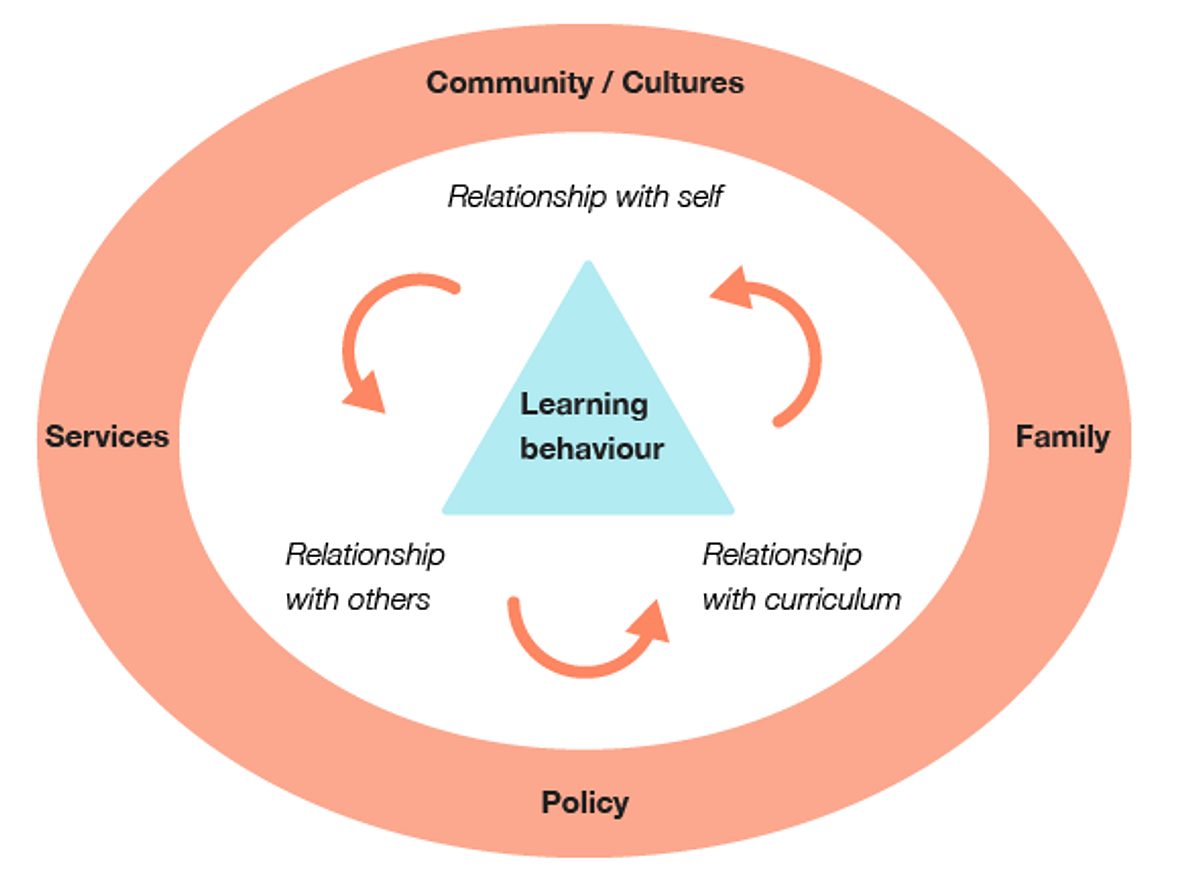
Making your Behaviour Policy Succeed
We explore some of the best bets in ensuring the successful implementation of a behaviour policy

Share on:

by Bradford Research School
on the
It can be helpful to use frameworks to support the development of learning behaviours in pupils. This conceptual framework, adapted from Powell and Tod (2004), appears in Recommendation 2 of the EEF’s Improving Behaviour in Schools guidance report.

The framework places the learning behaviour in the centre, and the wider context on the outside. It frames the learning behaviour in terms of three relationships: relationship with self, relationship with others, relationship with curriculum.
Relationship with self, which could include elements like self-efficacy, confidence and resilience.
Relationships with others, which is the willingness and ability to form and maintain meaningful relationships with peers and adults.
Relationship with the curriculum, which means being able and willing to access, process and respond to the curriculum.
Simon Ellis and Janet Todd in their book, Behaviour for Learning: Promoting Positive Relationships in the Classroom, show how the relationships could manifest in the example of a pupil who is late to a lesson:
Relationship with self: ‘I’ll feel embarrassed walking in after everybody else has started.’
Relationship with others: ‘Will my teacher be cross? What will I say? What will the class think? Can I look apologetic to my teacher while looking nonchalant in front of my peers?’
Relationship with the curriculum:‘Now I’ve missed the start I might not know what to do.’
These three relationships are an interesting lens through which to view any behaviours, and allow teachers to understand, support and preempt.
The following example is from the guidance report. and considers how this lens could help a pupil who does not respond well to setbacks:
Increasing engagement (relationship with self)— discussing a time the pupil has given up when experiencing a setback and challenging them to stick with the next task, listening to any concerns the pupil has about being able to achieve or issues with self-motivation;
Improving access (relationship with curriculum) — ensuring the pupil has appropriately levelled work that will lead to the experience of success as long as they stick with it; praising the pupil for achieving and highlighting that their perseverance got them through it; and
Ensuring participation (relationship with others)— set a classroom culture where pupils are proud to say they found a task difficult at first and are not afraid to get things wrong.
This lens can be reactive, and help the teacher in the moment. They can understand the issues at play and this might inform how they resolve or deescalate a situation. It is a framework that can also help to address persistent problems that individuals may have in class.
It can also be used proactively to think about the classroom climate, and develop a culture of support and rigour where these relationships will thrive. One where pupils’ relationships with self, others and curriculum are positive and helpful.
Our newsletter is out next week. Sign up here.

We explore some of the best bets in ensuring the successful implementation of a behaviour policy

Our reflections on the EEF’s SEL guidance report

Blog -
The EEF’s new implementation guidance report places a focus on engaging people

Blog -
We share questions and resources to unpick the EEF’s Voices from the Classroom

Blog -
Investing in Subject Knowledge has Multiple Benefits
This website collects a number of cookies from its users for improving your overall experience of the site.Read more